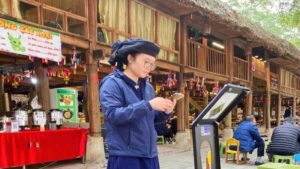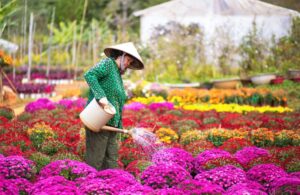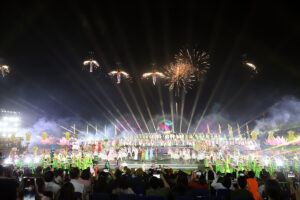The Cuu Long (Mekong) Delta province of Dong Thap plans to expand lotus farming, increase the value of lotus products and promote tourism based on visits to lotus fields.
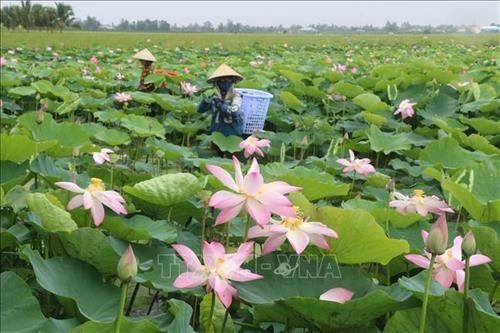
Farmers harvest lotus seeds in Dong Thap Province’s Thanh Binh District. — VNA/VNS Photo Nguyen Van Tri
The delta’s largest lotus-growing province plans to increase the area under the flower from the current 800ha to 1,350ha by 2025.
Farmers there grow six varieties, mostly in Thap Muoi, Cao Lanh, Tam Nong, and Thanh Binh districts, where conditions are conducive.
Lotus farming requires low investment but fetches incomes four to six times higher than rice, according to farmers.
Besides fresh flowers, seeds and roots, the province also produces various types of lotus-related products such as essential oil, cosmetics, wine, milk, tea and other beverages, and food.
The province, well known as the land of pink lotuses, has developed tourism products such as visiting lotus fields and foods made from the flower.
Lotus is one of the five key products in the province’s agriculture restructuring plan, as products made from the flower have been exported, providing high incomes for farmers.
Thap Muoi District has nearly 400ha of lotus with an annual yield of three tonnes of seed per hectare.
The district has nine lotus products recognised under the national ‘One Commune – One Product’ programme, including lotus flower tea, lotus lumule tea, lotus leaf tea, fresh lotus seeds, and dried lotus seeds.
The district has established the Thap Muoi eco-tourism area with more than 40ha of lotus, with local households offering homestay and foods made from the flower to tourists.
Le Van Ngot, who allows tourists to visit his 4ha lotus field in My Hoa Commune, earns around VND300 million (US$13,000) from each crop. Income from providing boat trips on lotus ponds and foods are a bonus.
The province is strengthening research into and cultivation of new lotus varieties, and will establish a 100ha area in Thap Muoi for growing new lotus varieties, according to its Department of Agriculture and Rural Development.
It would expand the cultivation of speciality varieties meant for producing various products like flowers, seeds, roots, and others, it said.
It is soliciting investment in the production of various lotus products and developing brand names to promote their sales through modern distribution channels at home and abroad.
It is also building flood prevention dykes and upgrading roads and parking spaces to enable tourists to visit lotus fields.
To promote lotus farming in association with tourism, the province will hold the first Dong Thap Lotus Festival in 2022 in Cao Lanh City from May 19 to 21, according to its People’s Committee.
It will feature a record 200 dishes made from lotus and an OCOP exhibition among various events.
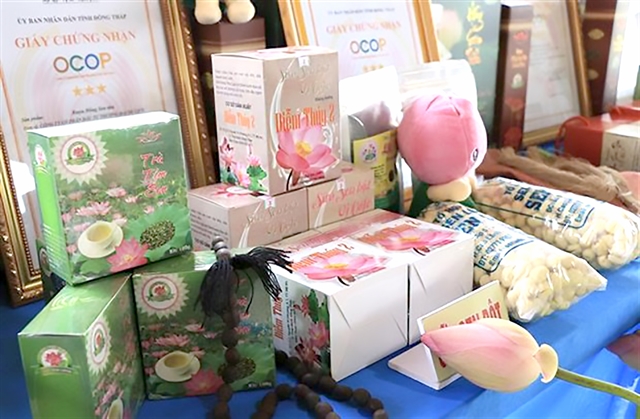
Dong Thap Province produces a number of products from lotus, especially foods. – VNA/VNS Photo Chuong Dai




